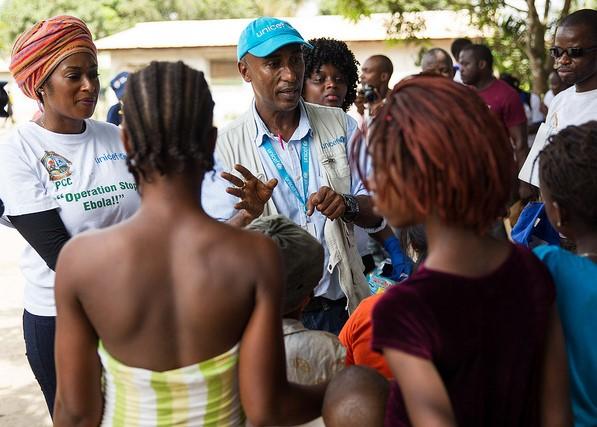Today Centers for Disease Control and Prevention (CDC) researchers writing in The Lancet Infectious Diseases described a case of Ebola disease in a Liberian woman in 2015 who had recovered from the disease, the third known such case of Ebola recurrence.
The findings spotlight a potential risk as an Ebola outbreak in the Democratic Republic of the Congo (DRC) is about to be declared over.
Liberia was one of the centers of the 2013-2015 West African Ebola outbreak, the largest in history. The outbreak resulted in more than 28,000 cases and 11,000 deaths, including more than 10,600 cases and 4,800 deaths in Liberia. The first Ebola case in Liberia was recorded in March of 2014, and the outbreak was declared over in May of 2015, after 90 days of no confirmed new cases.
Genetic testing and epidemiologic investigations helped researchers conclude that the woman, a mother of four, was the source of an Ebola flare that took the life of one of her children months after Liberia was declared free of Ebola.
In September of 2015, the woman gave birth to her fourth child, and two months later, her 15-year-old son tested positive for Ebola. He died on Nov 23, 2015, in Monrovia. Another son and the woman's husband tested positive for Ebola RNA and reported mild symptoms.
At that point, the mother tested negative for Ebola RNA, but had positive Ebola virus antibodies, suggesting a previous infection. After interviewing the woman, the researchers learned she cared for her brother, who died from Ebola in July of 2014. The 2-month old infant also had antibodies, likely transmitted via breastmilk.
Genetic analysis linked the family's virus strain to the same strain that circulated in Liberia in 2014, and the authors believe transmission occurred through close contact and a sharing of bodily fluids.
While this is the third known case of recurrence (the other two cases were in an American physician and a Scottish nurse), this is the first known case of Ebola transmission originating in a recurrent infection.
Pregnancy could have triggered virus flare
In the case description, the authors suggest that pregnancy may have played a role in triggering the flare.
"We do not know that it was pregnancy and childbirth that caused the reoccurrence," Emily Kainne Dokubo, MD, MPH, the Cameroon country director for the US Centers for Disease Control and Prevention and lead author, told CIDRAP News. "But we know that pregnancy can mimic an immunocompromised state for some women."
The woman survived her recurrence, Dokubo said, but the case shines a light on the remote but real risk of recurrence in other Ebola survivors. It also supports the wide use of Ebola vaccine, Dokubo said, and increased surveillance in countries like the DRC for several months after an Ebola outbreak.
Vaccination could also help eliminate disease stigma among the approximately 17,000 West African Ebola survivors, she said.
"Despite no active Ebola virus transmission chains in west Africa, Ebola virus persistence poses a continued risk for resurgence of cases and has potential for a large-scale outbreak if not detected rapidly and controlled," the authors concluded.
See also:
Jul 23 Lancet Infect Dis report

















